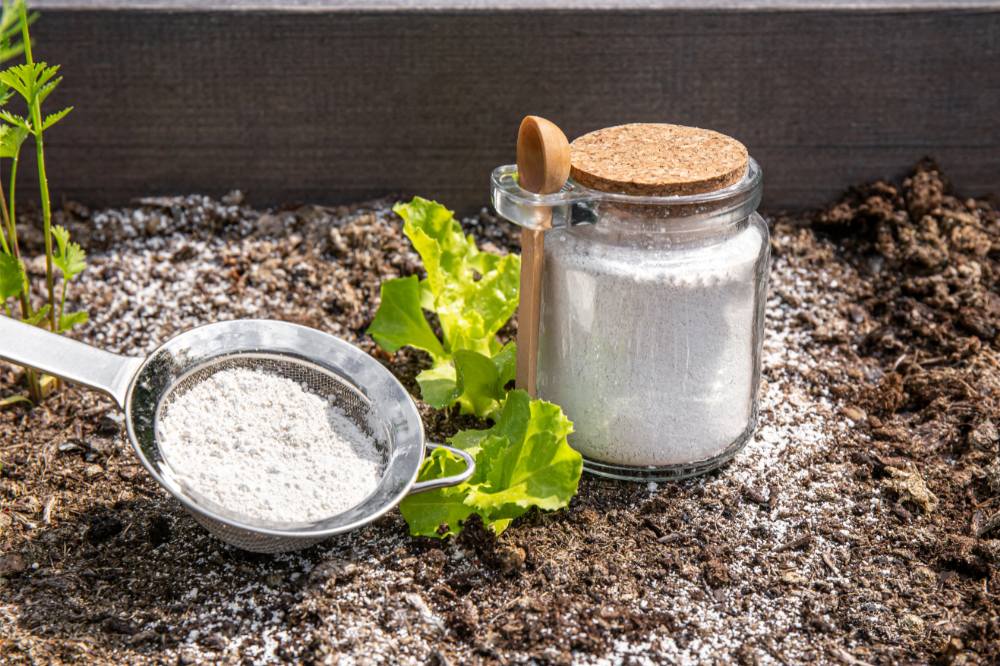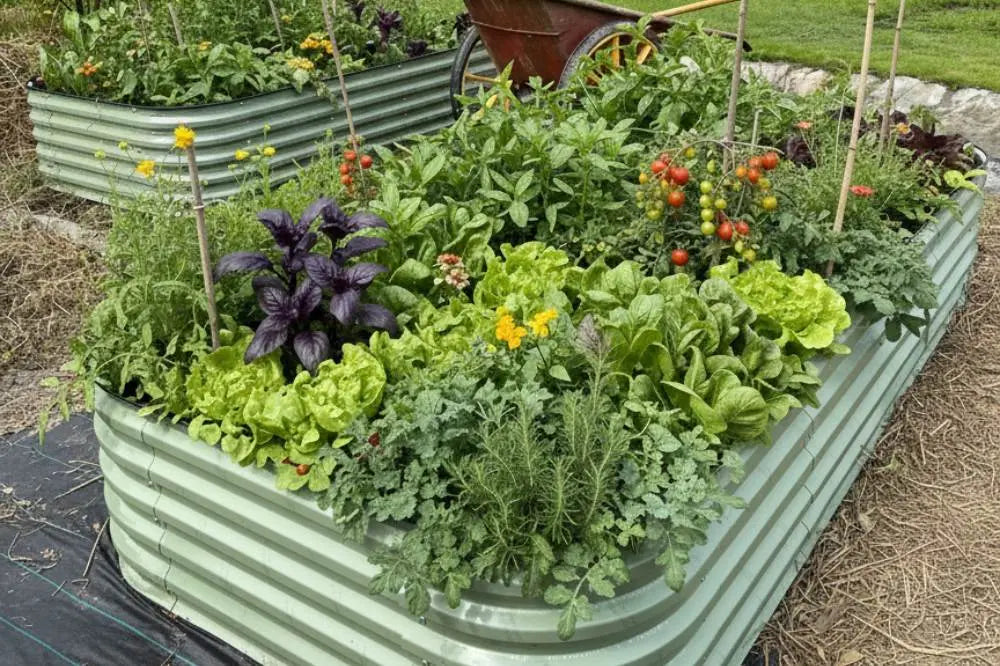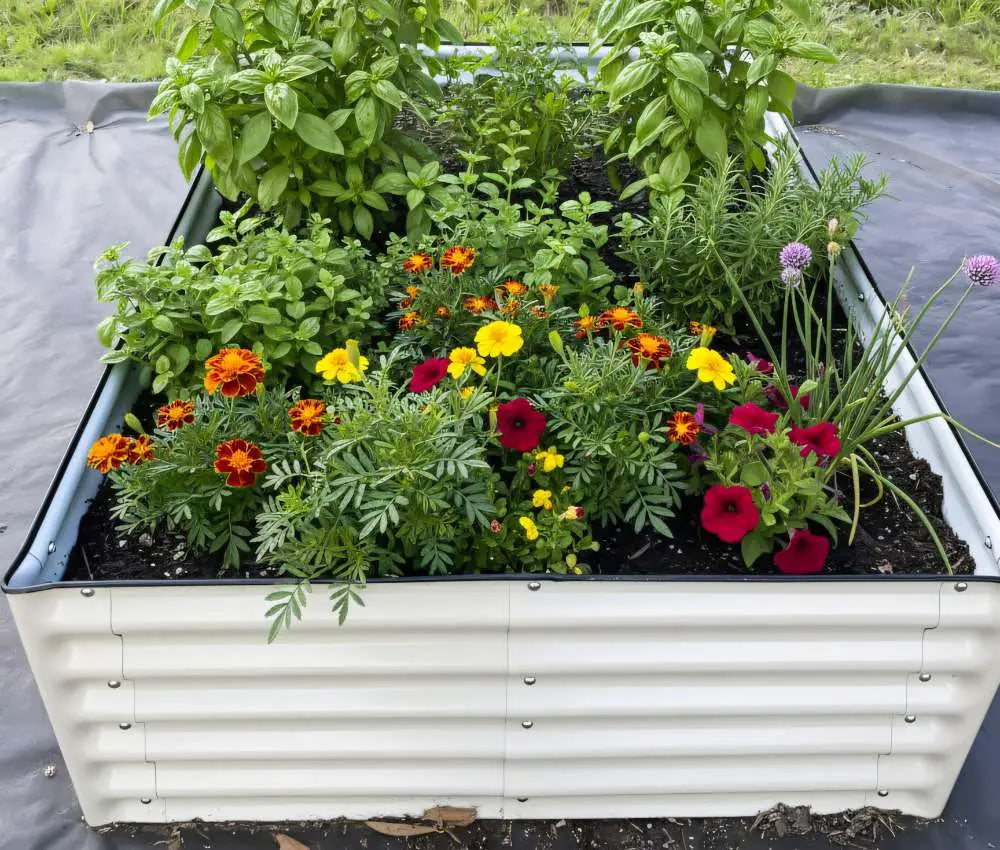Eco-Friendly Pest Control Methods for Raised Bed Gardens
By Alliouche
Author bio: Hello, I'm Imad Alliouche, a budding gardener specializing in the cultivation of tulips and saffron. Through my website, The Hobbyist's Roadmap, I strive to guide individuals in starting their own hobbies, particularly in the realm of gardening. With a keen interest in tulips and saffron, I share my knowledge and experiences to help others embark on their gardening journeys with confidence.
Raised bed gardening has been my passion since it provides me with so many advantages, such as improved drainage, improved soil quality, and easier plant accessibility. But pests may be an issue, just as in any garden. Ordinary pesticides may appear like a fast fix, but I've discovered they can harm beneficial insects, harm the ecosystem, and even endanger my health. Fortunately, I've discovered a number of environmentally friendly techniques to control pests in my raised bed without endangering my plants, the surrounding area, or myself. Now let's take some proactive measures to support a thriving garden environment!
Promoting a healthy garden ecosystem
First of all, cultivating a healthy garden ecology is one of the most important eco-friendly pest management techniques. That being said, this all-natural method helps keep pests away without using dangerous chemicals.

Companion planting
Grow companion plants in your garden has many benefits, you may confuse or repel pests by grouping specific plants together in a smart way. For example, the strong aroma of marigolds can successfully repel aphids, whiteflies, and other pests from growing near your raised beds. Think about adding chives or garlic to the area around your veggies. Slugs, snails, and even certain animals like deer and rabbits can be repelled by these plants. Now read about the companion plants list in your raised garden bed.
Attracting Beneficial Insects
Now let's focus on attracting beneficial insects to your raised bed garden. These tiny insects, which include ladybugs, lacewings, and parasitic wasps, are naturally occurring predators of common plant pests. To draw beneficial insects to your raised beds, surround them with a variety of flowers and herbs. Because these plants provide nectar, pollen, and cover, beneficial insects can thrive. Herbs such as dill, fennel, coriander, and yarrow 3 are excellent in attracting beneficial insects. You may contribute to creating a pest-repelling, healthy ecosystem in your garden by include them.
Physical Pest Control Methods
In addition to fostering a healthy garden ecology, you may use a variety of physical pest control techniques in raised bed gardens.
Manual Removal
One simple method is to hand remove bugs, or use tweezers or small vacuums. This works particularly well against larger pests like caterpillars, slugs, and snails. Check your plants frequently, focusing especially on the undersides of the leaves, to spot and get rid of any pests before they have a chance to spread and do damage.

Natural Barriers and Entrapments
To stop more persistent pests like slugs and snails from harming your plants, you may use barriers like raised bed cover or traps. Make a ring around the base of your plants with crushed eggshells, coffee grinds, or diatomaceous earth. These materials' sharp edges could deter soft-bodied bugs. Set up beer traps by placing little dishes loaded with beer around your raised beds. The yeast in the beer attracts slugs and snails, causing them to fall into the liquid and drown.
Natural and Organic Pest Control Products
You can use natural and organic pest control solutions as a last resort if physical pest control techniques prove insufficient.
Natural, Non-Toxic Sprays and Dusts
Aphids and other soft-bodied pests may be removed from your plants using a powerful water jet. Combine a quart of water and a spoonful of mild dish soap to create a DIY insecticidal soap spray. Aphids, whiteflies, and spider mites are just a few of the multitude of pests that this remedy may successfully eradicate.
Organic Pesticides
In certain situations, using organic insecticides to manage more serious pest infestations could be necessary. Pick products that are designated for use in organic gardening on the label, and pay close attention to the application guidelines. Numerous pests' life cycles are disturbed by neem oil. A naturally occurring bacterium called Bacillus thuringiensis (Bt) is directed against certain pests like caterpillars. 1

Cultural Practices for Healthy Plants
Incorporating beneficial cultural techniques that encourage robust plant development will also mitigate the likelihood of insect issues in your raised bed garden. Plants should be spaced appropriately to allow for enough air circulation, which can help avoid fungus infections that draw pests. Because pests frequently look for hiding spots in congested gardens, keep your raised beds clean and clear of trash. Ensure that your beds are regularly cleared of dead leaves, stems, and fallen fruit. To keep the soil wet and inhibit the growth of weeds, think about applying a layer of mulch.
Maintaining Healthy Soil
Rich in beneficial microbes that promote strong plant development and organic insect resistance, good soil is a treasure trove. Make sure you include organic matter, like compost, aged manure, or leaf mold, into your soil on an annual basis to maintain its health. This promotes microbial activity and restores nutrients. To ensure your plants have the nutrients they require to flourish, you should also use organic fertilizers like fish emulsion or bone meal. This guarantees that your plants will remain robust and pest-resistant. Read about the effective ways to improve soil structure and texture.
Monitoring and Early Detection
Now, keeping a frequent eye on your plants is one of the most important parts of pest prevention. Spend some time looking for evidence of insect damage on your plants, such as deformed growth, holes in the leaves, or sticky residue on the stems. Early detection of pest issues allows you to quickly take control of them before they seriously harm your plants. By being proactive, you can maintain the health and growth of your garden.
Conclusion
In addition to being successful in controlling pests in raised bed gardens, environmentally friendly pest management techniques also foster a more robust garden ecology. You may effectively control pests without using hazardous chemicals by employing strategies including companion planting, luring helpful insects, physical removal, natural sprays and barriers, and organic insecticides.
Frequently Asked Questions:
How can I maintain healthy soil to promote natural pest resistance in raised bed garden?
In order to keep your raised bed garden's soil in good condition and encourage natural insect resistance, every year, add organic matter to your soil, such as compost, aged manure, or leaf mold. Use organic fertilizers to provide your plants the nutrients they require to flourish, such as fish emulsion or bone meal.
How often should I monitor my raised bed garden for signs of pest problems?
It's critical to often check your raised bed garden for indications of pest issues, including as deformed growth, holes in the leaves, or sticky residue on the stems. Try to check your plants once a week at the very least, and deal with any pests you notice right once to prevent major harm.
References:
1- Snyder, W. E. (2019). Give predators a complement: Conserving natural enemy biodiversity to improve biocontrol. Biological Control, 135, 73-82. https://doi.org/10.1016/j.biocontrol.2019.04.017
2- http://ipm.ucanr.edu/GENERAL/whatisipm.html
3- Zehnder, G., Gurr, G. M., Kühne, S., Wade, M. R., Wratten, S. D., & Wyss, E. (2007). Arthropod pest management in organic crops. Annual Review of Entomology, 52, 57-80. https://doi.org/10.1146/annurev.ento.52.110405.091337


